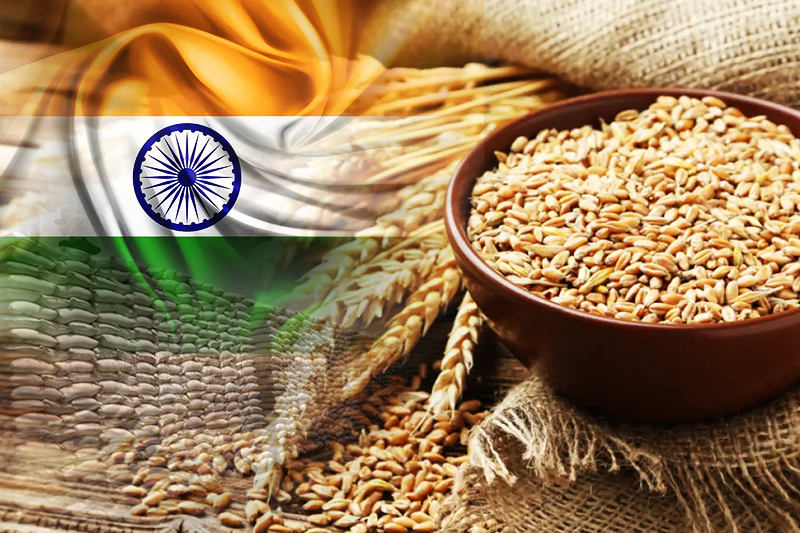India: Government considering cut in import duties on wheat, chana

After taking a number of measures to rein in food inflation recently, the government is discussing several other proposals including cutting import duties on wheat and chana to boost domestic supplies and preempt spike in prices.
Sources told FE that the government is keeping a close watch on the wheat prices and “all possible measures are under consideration to bring down the prices,”.
Traders said that by reducing in import duty on wheat the government should allow private players to buy wheat as global prices have softened. An import duty of 40% on wheat imposed in April, 2019, Officials said after the government’s move to sell more quantities of wheat in the open market to curb rise in prices, the stocks held with the Food Corporation of India (FCI) may fall below the buffer requirement by the beginning of next fiscal.
The government allocated an additional 2 million tonne (MT) of wheat to be sold in open market ‘if needed’ besides 10 MT already allocated for the current fiscal. So far 4.4 MT of wheat has been sold from FCI stocks.
Inflation in wheat declined 6.36% last month from 7.6% in October.
Last week the government announced duty-free imports of yellow peas which are used as a substitute for chana until March 31 next year to cool prices of pulses.
Retail inflation in pulses category rose to 20.23% in November while that of chana reported at 13.05%.
Traders said reduction in chana import duty may improve domestic supplies till the new harvest arrives by April.
In December, 2019, the government had imposed a minimum import price of Rs 200/kg of all varieties of peas – yellow, green, dun and kaspa and had fixed an annual quota of 0.15 MT for curbing cheaper imports and boost domestic prices.
Sources said that with the farmers’ cooperative Nafed has about 2 MT of buffer would be sufficient to carry out selling chana under Bharat Dal initiative and offloading the pulses variety in the open market for purchase by bulk buyers till new crops commence arriving in the market by April next year.
Currently there is a 66% import duty on chana sourced from Australia while the government has abolished import on pulses from the least developed countries (LDCs) such as Tanzania, Mozambique and Malawi.
Trade sources said that to augment domestic supplies, the government should reduce the current import duty of 40% on kabuli chana which can be sourced from Russia.
Besides there are apprehensions about the next crop whose sowing is currently being undertaken, which is likely to be impacted by El Nino conditions persisting till next year.
As per the agriculture ministry latest data, the sowing of chana this season (2023-224) was less by 10% at 8.18 million hectare (mh) against 9.09 mh reported during the same period previous season.
Read also
Wheat in Southern Brazil Impacted by Dry Weather and Frosts
Oilseed Industry. Leaders and Strategies in the Times of a Great Change
Black Sea & Danube Region: Oilseed and Vegoil Markets Within Ongoing Transfor...
Serbia. The drought will cause extremely high losses for farmers this year
2023/24 Safrinha Corn in Brazil 91% Harvested
Write to us
Our manager will contact you soon



